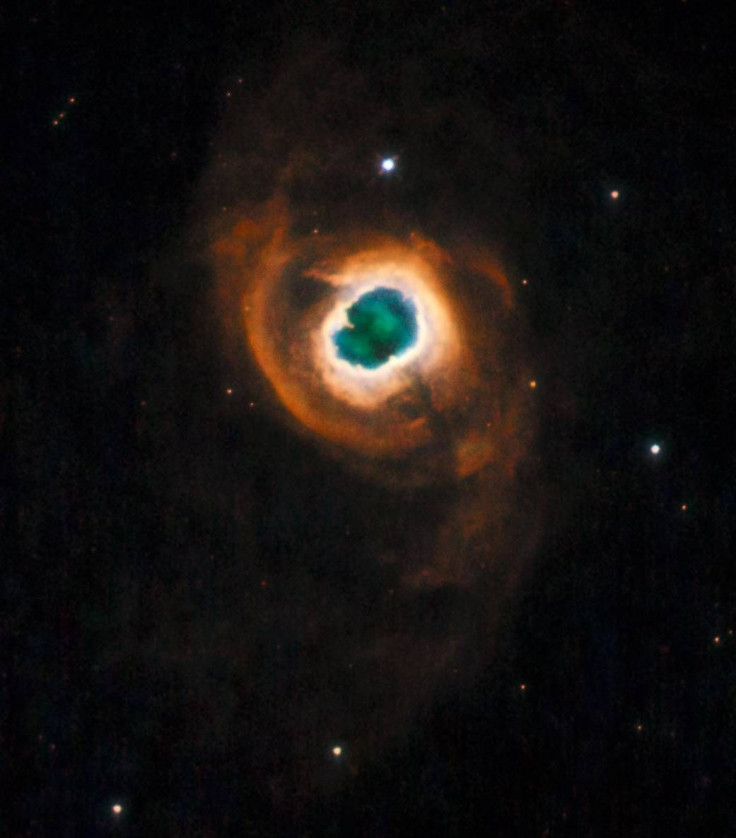NASA Shares Image Of Glowing Nebula Illuminated By Dying Star
KEY POINTS
- NASA shared a photo of a nebula captured by the Hubble Space Telescope
- Kohoutek 4-55 is a planetary nebula formed by a dying star
- Kohoutek 4-55 was the last cosmic object photographed by the Wide Field and Planetary Camera 2
NASA shared a mesmerizing image of a planetary nebula taken by the Hubble Space Telescope. According to the agency, a dying star ejecting its outer shell is causing the nebula to glow brightly.
The massive cosmic structure in Hubble’s photo has been identified as Kohoutek 4-55, named after its discoverer Czech astronomer Luboš Kohoutek. It is located in the Cygnus constellation and lies about 4,600 light-years from Earth’s neighborhood.
According to NASA, Kohoutek 4-55 is a planetary nebula that features a red giant star at its center. As a red giant, the central stellar object has already reached the last stages of its life.
As the star begins to die, it sheds off its outer layers, which then form the main structure of the planetary nebula. The ultraviolet radiation escaping from the red giant ionizes the surrounding ejected materials, causing the entire nebula to glow brightly.
“A planetary nebula contains the outer layers of a red giant star that were expelled into interstellar space when the star was in the late stages of its life,” NASA explained in a statement. “Ultraviolet radiation emitted from the remaining hot core of the star ionizes the ejected gas shells, causing them to glow.”
The photo of Kohoutek 4-55 was the last image taken by Hubble’s onboard Wide Field and Planetary Camera 2 in 2009. Installed in 1993, the instrument spent 16 years taking stunning images of various cosmic objects and structures such as comets, nebulae and supernova events.
On May 14, 2009, the instrument was officially decommissioned after it was replaced by the Wide Field Camera 3, which is the current imaging equipment of Hubble.
NASA noted that in Hubble’s photo, various colors could be seen within Kohoutek 4-55. According to the agency, these colors represent the different chemicals emitted by the central star into the massive cloud of dust and other stellar debris around it.
“This Hubble image was taken by the Wide Field and Planetary Camera 2 on May 4, 2009,” NASA stated. “The colors represent the makeup of the various emission clouds in the nebula: red represents nitrogen, green represents hydrogen, and blue represents oxygen.”

© Copyright IBTimes 2024. All rights reserved.





















